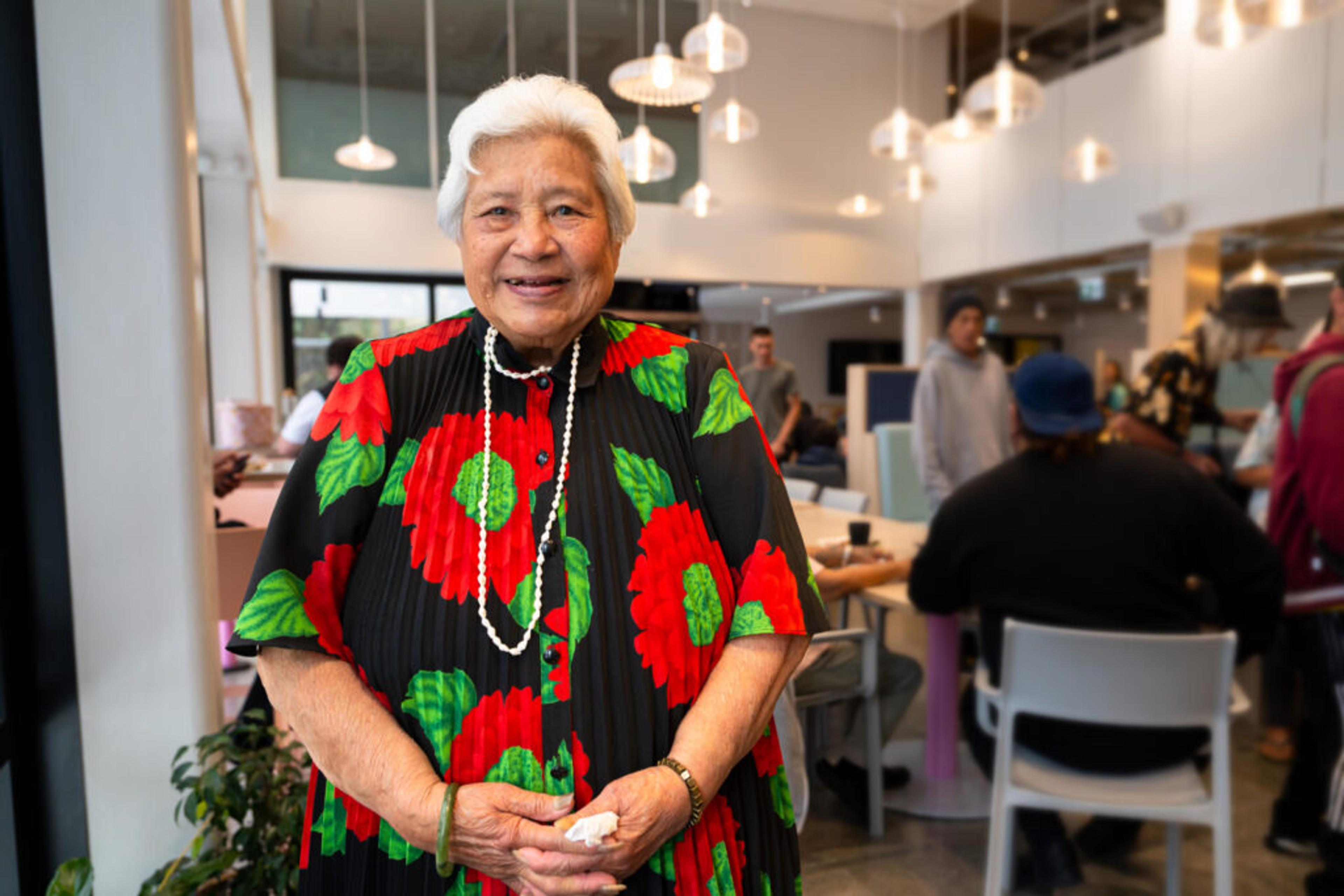
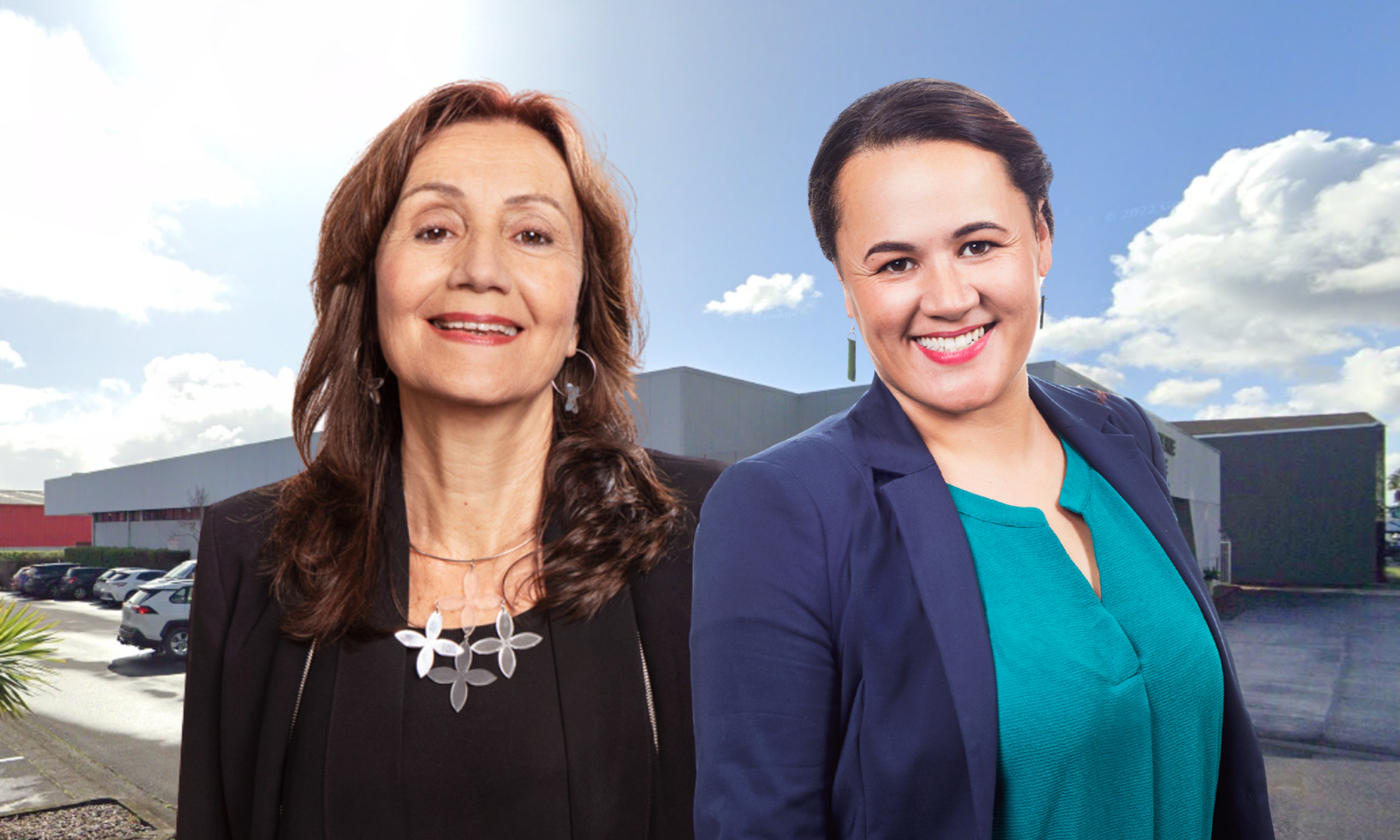
Le Va outgoing CEO Denise Kingi-'Ulu'ave (left) and her successor, Mati Dr Elizabeth Mati.
Photo/Supplied/Google Maps
Changing of the guard at Le Va: Denise Kingi-‘Ulu‘ave hands over the reins
Mati Dr Elizabeth Mati is the new chief executive of the Pacific-led organisation, succeeding Kingi-‘Ulu‘ave, who moves to a prevention-based role.


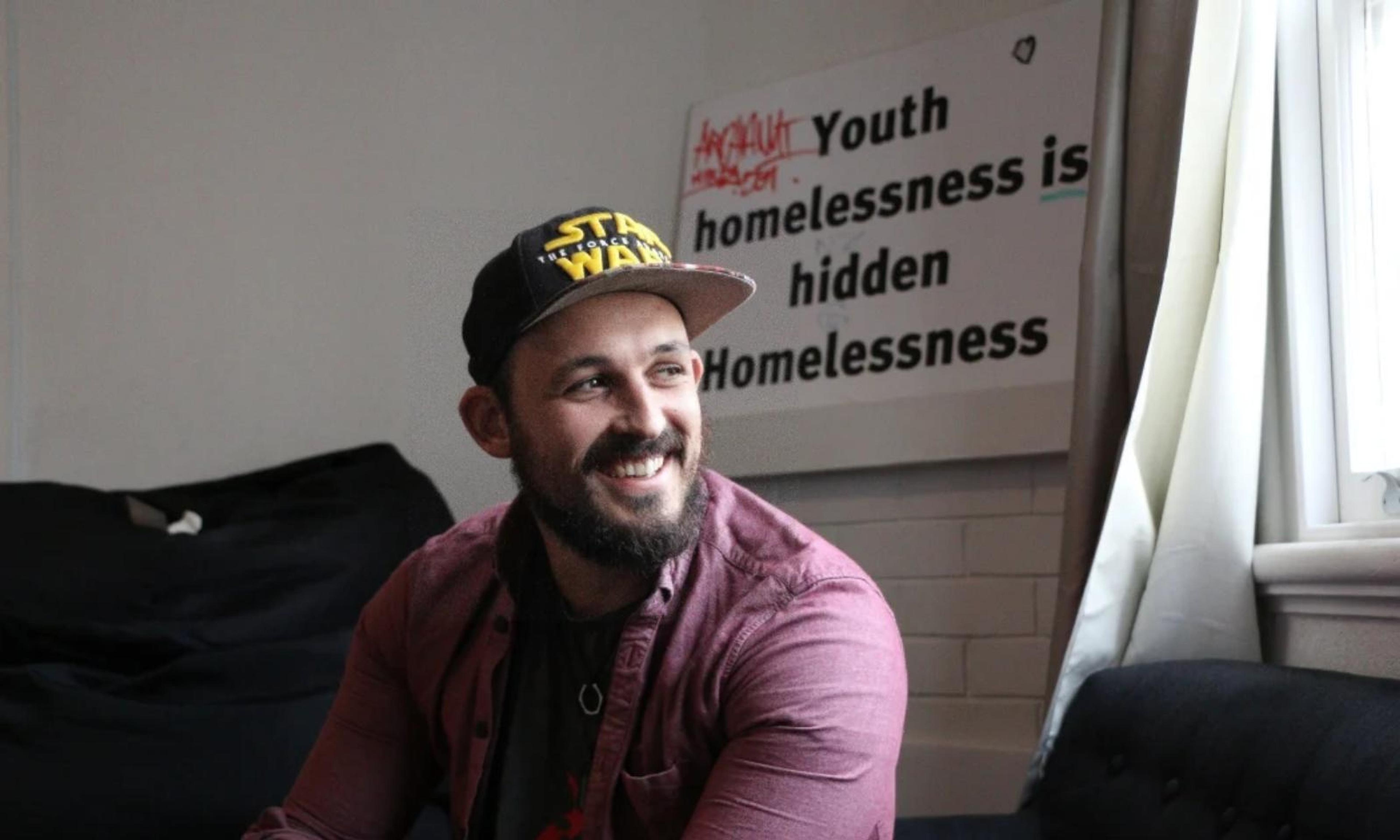
Govt accused of ‘punching down’ on young people over Jobseeker changes

From mortgages to muscle rubs: Apa Fatialofa’s business is one built on belief

First Pasifika councillor on her struggles, pride and facing racism


Govt accused of ‘punching down’ on young people over Jobseeker changes

From mortgages to muscle rubs: Apa Fatialofa’s business is one built on belief
Le Va, a Pacific-led organisation renowned for its national suicide prevention programmes, is entering a new era as long-serving chief executive Denise Kingi-‘Ulu‘ave hands over leadership to Mati Dr Elizabeth Mati.
Both leaders share a commitment to seeing Pacific communities thrive, grounded in cultural values and innovation.
After 13 years at the helm, Kingi-‘Ulu‘ave says she is “really proud” of what the organisation has achieved.
“We haven’t been afraid to tackle the really hard issues that are impacting our communities, such as mental health, addictions, suicide, disability and sexual violence,” she tells Ala Vailala on Pacific Mornings.
She highlights the success of “culturally appropriate and clinically safe” training programmes and resources, as well as the privilege of serving not only Pacific communities but the wider population.
One of her proudest moments is the development of two national suicide prevention programmes in Aotearoa - the LifeKeepers and FLO: Pasifika for Life - both of which have shown effectiveness in saving lives.
Watch Denise Kingi-'Ulu'ave and Mati Dr Elizabeth Mati's full interview below.
Mati officially takes on the role of chief executive this week and feels humbled to follow in Kingi-‘Ulu‘ave’s footsteps after serving as general manager.
“It’s become more than a workplace for me,” Mati tells Vailala. “It’s work that I’m really passionate about, and it’s a purpose that I believe in.”
Josiah Tualamali’i, chair of the Le Va board, says in a statement the planned leadership transition is an exciting time for the organisation.
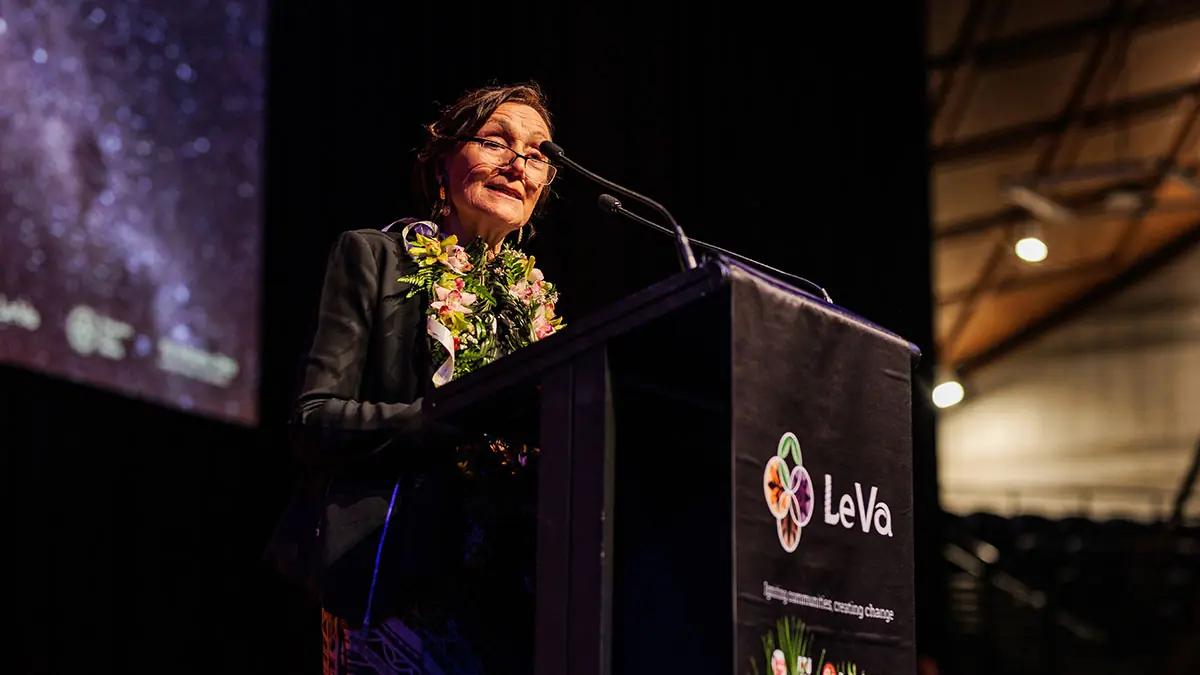
Outgoing Le Va chief executive Denise Kingi-'Ulu'ave. Photo/Facebook
“The Le Va board wishes to honour and recognise Denise’s family and their support, as well as her legacy of transformative leadership that has helped shape Le Va as a trusted, internationally recognised leader in suicide prevention, violence prevention, disability and mental health,” he says.
“We are excited for her new role, where her deep knowledge, mana and connections will continue to benefit the wider mental health and wellbeing sector.”
Reflecting on leadership through challenges
Kingi-‘Ulu‘ave credits her team and Tongan values for keeping her grounded while leading through challenges such as natural disasters and a pandemic.
“My clinical training gives me tools and evidence, but culture gives me the heart and the why behind the work that we do… they’ve always gone hand-in-hand,” she says.
“Also maintaining a strong sense of purpose and holding strong to our values and a strong belief in service and collective responsibility… that got me through.”
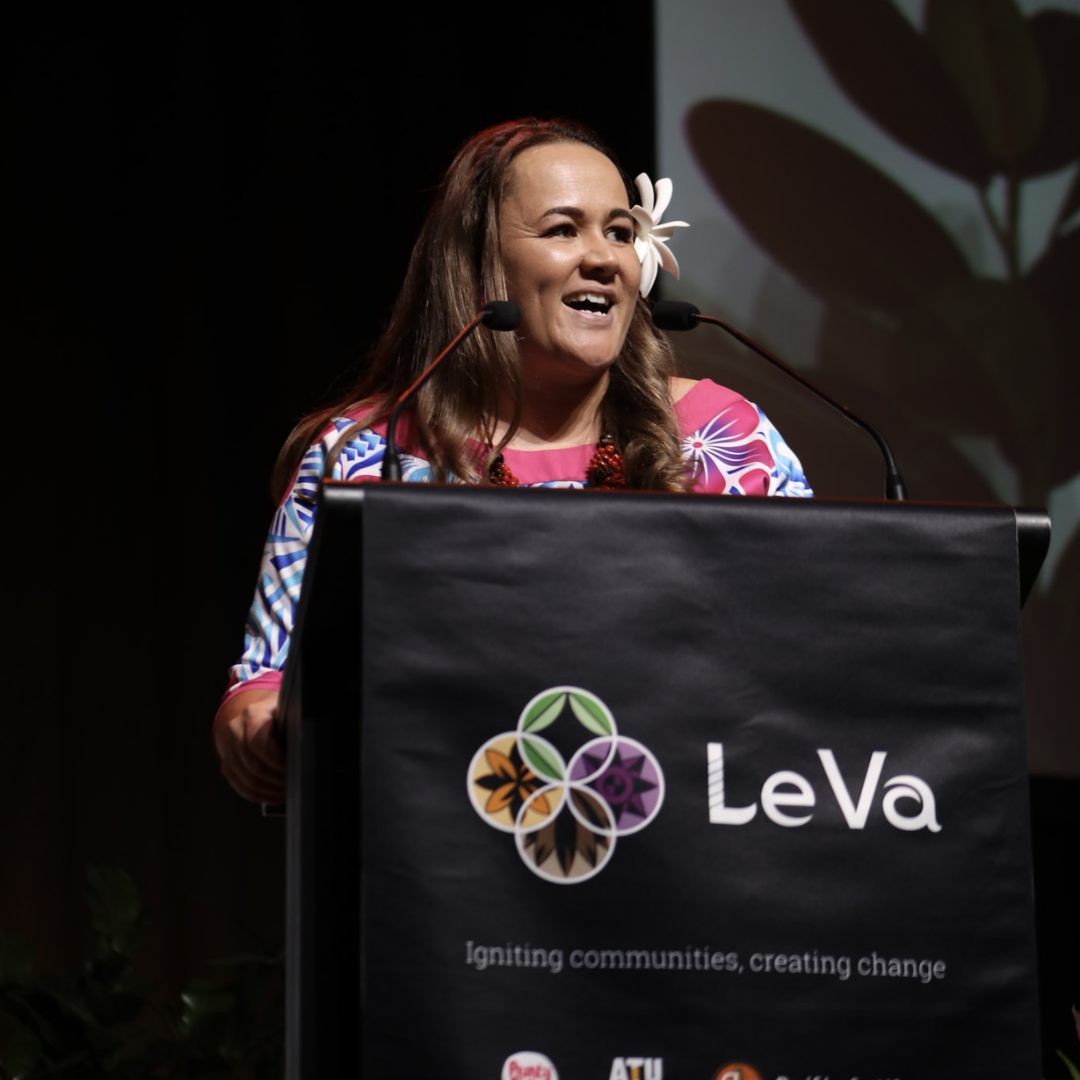
Incoming Le Va chief executive Mati Dr Elizabeth Mati. Photo/Supplied
Mati says she admires Kingi-‘Ulu‘ave’s fearlessness in leadership.
“No matter what table she’s sitting at… she speaks up with courage but also with grace and respect, which means that people listen,” she says. “That balance of strength and humility is something that I will continue to hold close to my heart and remember and carry with me.”
Kingi-‘Ulu‘ave is not leaving the sector, but moving into a strategic role with the Wise Group, a mental health and wellbeing service provider.
In her new position, she aims to focus on prevention, working to build well-being and resilience to avoid crises.
“Training community leaders, creating safe spaces for young people and designing services that reflect our cultures and values,” Kingi-‘Ulu‘ave says. “It's about getting ahead of the problems, not just responding when things are at breaking point.”
A 2024 report by the Mental Health and Wellbeing Commission warns Pacific people could be at higher risk of depression and anxiety.
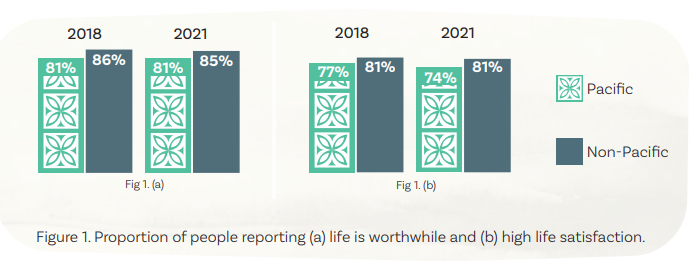
A report by He Ara Oranga shows Pacific people rate their wellbeing lower than other ethnic groups. Image/Mental Health and Wellbeing Commission
Looking ahead
Mati envisions honouring the foundation laid by her predecessor while also embracing innovation.
“We're never going to have enough secondary and frontline services to meet demand,” she says. “We need to prevent harm from happening for economic reasons, but also for social and cultural reasons too.
“I’d love to see our cultural ways of knowing our cultural models of mental health and well-being being celebrated, being validated and utilised across even mainstream.”
Mati echoes the need for systemic shifts to prevent harm before it occurs, ensuring that young people feel safe seeking help.
“I hope that our young people will grow up and know that it's okay to share openly how they're feeling. It's okay to ask for help, and when they do ask for help, the services are there, the family is there, and the community is there to provide that help.”